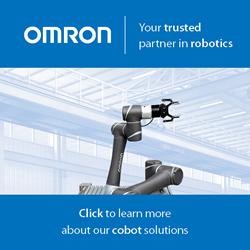AI Hardware Summit: Next 12 Months of AI Hardware Industry to Be Mapped out at Silicon Valley Event
Hyperscalers, semiconductor companies, device manufacturers and the critical mass of AI hardware start-ups from across the globe, will present their approaches to processing machine learning training and inference workloads in both server and client computing at the AI Hardware Summit, September 17 – 18, 2019.
There is little doubt that, in 2019, AI hardware is a focal point for tech industrialists, computer scientists, AI researchers and governments alike, after a Cambrian explosion of new hardware precipitated by a sudden and huge demand for computational power coinciding with an impending transformation of the existing computing paradigm. The landscape of the technology industry, and the fundamental way in which computing is done, will almost certainly look very different a decade from now, due in no small part to AI hardware, and the $65bn+ opportunity of this market.
There now exists such a bewildering array of start ups and incumbents at varying stages of product development, working on chips, systems, memory and storage, power supply, interconnect and networking solutions, that it is futile for customers to try to keep tabs of the availability of solutions in real time. Complicating matters further, are factors such as the immaturity of standardized industry benchmarks for performance, the lack of clarity around software support, and significant challenges around flexibility, resilience and scalability of new AI hardware.
Rising to this need for guidance, leadership, community and dialogue, the AI Hardware Summit returns to the Computer History in Mountain View, CA on September 17-18.
For the first time, Alphabet Inc. Chairman and hardware luminary John L. Hennessy will give an in-depth keynote on ‘The End of Moore's Law, CPUs (as we know them), and the Rise of Domain Specific Architectures.'
Following this keynote, CEOs and CTOs from the world's leading AI chip start-ups, including Cerebras Systems, Wave Computing, Mythic, Graphcore, SambaNova Systems, Groq, Habana Labs and Horizon Robotics will update attendees on the progress of their products, and of any early customer success feedback.
Additionally, users of AI chips, designers of AI systems, hyperscalers and AI practitioners in the enterprise will present on their processing requirements and their challenges in designing and deploying AI systems in both server and client computing environments. Speakers are drawn from companies like Google, Facebook, Microsoft, Alibaba, Dell, IBM, Medallia, Xiaopeng Motors, Argo, Panasonic and many more.
In recent weeks several multinationals and start-ups spanning the AI hardware value chain have further bolstered the speaker roster, from Vicor Corporation, Mentor Graphics, Rambus, Kalray, GrAI Matter Labs and Optum Health.
Finally, financial and industrial analysts, plus leading VCs and public investors will add their perspectives on possible inflection points in the market, and on the projected growth and hurdles in the space, to the not inconsiderable contingent of financial institutions, hedge fund managers and analysts in the room.
Last year, the event sold out and saw the launch from stealth mode of leading start up Habana Labs, who return this year for an in-depth workshop offering attendees a closer look at their Gaudi processor, designed for data center training workloads, that promises a 4x improvement on GPU-based systems. The Summit guarantees more industry-defining announcements of similar magnitude to the Habana Labs launch, that will give attendees a first look at new entrants into the market.
This year, the AI Hardware Summit is set to once again sell out, despite doubling in size to 600 attendees, and has fewer than a few hundred tickets remaining. Early Bird pricing is available until July 19, and details for workshop sign-ups will be released soon to registered attendees.
Featured Product

